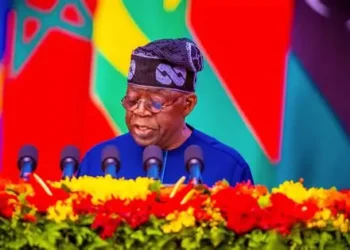The Chadian government’s decision to end its longstanding military partnership with France marks a watershed moment in Africa’s geopolitical landscape. This move comes as France grapples with diminishing influence across the Sahel region, once a stronghold of its military and political presence.
France Loses a Key Ally
Chad’s announcement follows a series of setbacks for France in Africa, with Mali, Burkina Faso, and Niger already expelling French troops amid mounting anti-French sentiment. The latest blow comes from one of France’s staunchest military allies, as Chad’s foreign minister, Abderaman Koulamallah, declared the decision “a historic turning point.”
France’s approximately 1,000 troops stationed in Chad will now have to vacate, potentially creating a power vacuum in a region already plagued by instability. Analysts warn that this may pave the way for increased Russian influence, particularly through the Wagner Group, whose paramilitary forces are already active in neighboring countries like the Central African Republic.
A Strained Legacy
The end of this defense partnership highlights a complicated history between France and Chad. France has intervened militarily in Chad more often than in any other African nation, supporting regimes, suppressing rebellions, and aiding in counterinsurgency efforts.
Under France’s Operation Barkhane, Chad’s battle-hardened troops played a critical role in combating Islamist insurgents across the Sahel. However, the relationship has not been without controversy. Critics argue that French involvement often prioritized its strategic interests over Chad’s sovereignty, fostering resentment among Chadian citizens.
The younger Déby, President Mahamat Idriss Déby, appears intent on charting a new course for Chad. Unlike his father, Idriss Déby, whose regime was closely aligned with France, Mahamat Déby is exploring alternative partnerships, including with Russia. His visit to Moscow in January and public rebukes of perceived foreign interference reflect a broader trend among African leaders distancing themselves from former colonial powers.
Russia’s Growing Influence
The withdrawal of French troops could further solidify Russia’s expanding footprint in the region. The Wagner Group, now under the Russian defense ministry, has established a presence in several African nations, offering military assistance and strategic support in exchange for access to resources and political influence.
Wagner’s communications specialists were reportedly involved in Mahamat Déby’s recent presidential campaign, signaling a deepening relationship between Chad and Russia. This shift aligns with a broader regional trend as African nations look to diversify their alliances, leveraging partnerships with countries like Russia and China to counterbalance Western influence.
Implications for France and the Sahel
For France, the loss of Chad is particularly significant. Chad has historically been one of the most militarily capable nations in the Sahel, with a proven record in counterterrorism operations. Without Chadian support, France’s ability to project power and influence in the region is further weakened.
President Emmanuel Macron, who attended the funeral of Idriss Déby in 2021 and pledged unwavering support for Chad’s stability, now faces a drastically altered landscape. The departure from Chad comes as Senegal’s president also signals intentions to remove French troops, amplifying the challenges for France’s African policy.
A Broader Trend of Sovereignty
Chad’s decision reflects a growing movement across Africa, where younger populations and leaders demand greater sovereignty and less reliance on Western powers. Public sentiment in former French colonies increasingly favors self-reliance or partnerships with non-Western nations perceived as less intrusive.
“This announcement is an enormous surprise for France,” said Charles Bouëssel, a Chad analyst with the International Crisis Group. He emphasized the domestic significance of the move, which bolsters Déby’s popularity and represents a broader regional shift away from France’s sphere of influence.
What Lies Ahead?
The departure of French troops from Chad adds another layer of uncertainty to an already volatile region. While it presents opportunities for Chad to assert its sovereignty and pursue diversified partnerships, the potential for a security vacuum remains a significant concern.
For the Sahel as a whole, the growing influence of actors like Russia and China could redefine the geopolitical dynamics of the region, challenging the West’s traditional dominance.
As Chad and other African nations increasingly demand a voice in shaping their own futures, France’s role in the Sahel will need to adapt, or risk becoming a relic of a bygone era.






